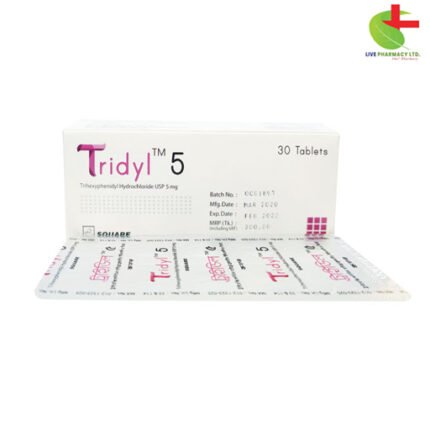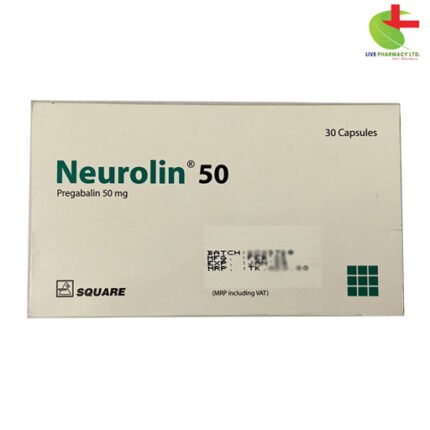Neurolin 25
100.00৳ Strip
- Versatile medication for neuropathic pain, diabetic peripheral neuropathy, and postherpetic neuralgia
- Adjunctive therapy for seizures and fibromyalgia
- Powered by Pregabalin for precise central nervous system targeting
- Effective relief prioritizing patient safety
- Comprehensive management for various neurological conditions
 Brand
Brand
|
Square Pharmaceuticals PLC |
|---|---|
 Generics
Generics
|
Pregabalin |
Indications
Neurolin serves as a versatile solution for various conditions, including:
- Neuropathic pain associated with diabetic peripheral neuropathy (DPN)
- Postherpetic neuralgia (PHN)
- Adjunctive therapy for partial-onset seizures (for patients aged 1 month and older)
- Fibromyalgia
- Neuropathic pain associated with spinal cord injury
Pharmacology
Derived from the inhibitory neurotransmitter gamma-aminobutyric acid (GABA), Pregabalin, the active ingredient in Neurolin, binds to the alpha2-delta site in the central nervous system, exerting anti-nociceptive and antiseizure effects.
Dosage
Dosage varies depending on the condition being treated. For neuropathic pain associated with diabetic peripheral neuropathy (DPN), dosing typically starts at 50 mg three times daily, with gradual adjustments based on efficacy and tolerability.
Administration
Neurolin is administered orally, with or without food. Pregabalin CR tablets should be taken after an evening meal and swallowed whole. Dosage adjustments are necessary when switching from regular Pregabalin capsules to the controlled-release formulation.
Interactions
Neurolin is unlikely to cause significant pharmacokinetic drug interactions. However, caution is advised when combining with CNS depressants.
Contraindications
Neurolin is contraindicated in patients with known hypersensitivity to Pregabalin or any of its components.
Side Effects
Common side effects in adults include dizziness, somnolence, dry mouth, and weight gain. Pediatric patients may experience increased weight and appetite.
Pregnancy & Lactation
Pregabalin’s safety during pregnancy and lactation has not been established, and caution is advised.
Precautions & Warnings
Neurolin may cause angioedema and respiratory depression. Caution is advised when operating machinery. Rapid discontinuation of Neurolin may increase seizure frequency.
Use in Special Populations
Safety and effectiveness in pediatric patients have not been established for certain conditions. Caution is advised in elderly patients.
Overdose Effects
Signs of overdose include reduced consciousness, agitation, and seizures. There is no specific antidote, and supportive care is recommended.
Therapeutic Class
Neurolin belongs to the class of adjunct anti-epileptic drugs and primary anti-epileptic drugs.
Storage Conditions
Store Neurolin in a cool, dry place, away from light and moisture, and keep it out of reach of children.













Reviews
There are no reviews yet.